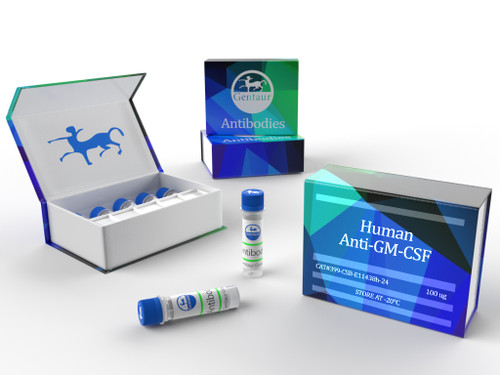Anti-Human Glycan-3 | Gentaur
Gentaur
- SKU:
- 401-B0025R-GEN
- Availability:
- IN STOCK
- Size:
- 100 µg
Recommended
-


Anti Human Thrombin | Gentaur
MSRP:Now: €340.00

Anti-Human Prothrombin | Gentaur
MSRP:Now: €340.00

Human Anti-GM-CSF | Gentaur
MSRP:Now: €340.00

Human Anti-SARS nucleocapsid | Gentaur
MSRP:Now: €340.00








